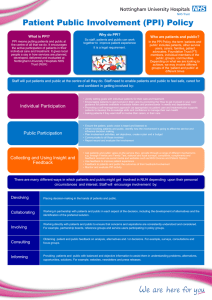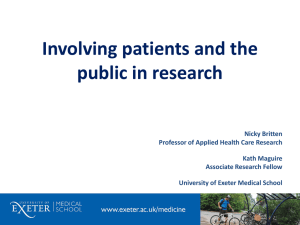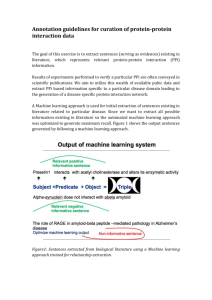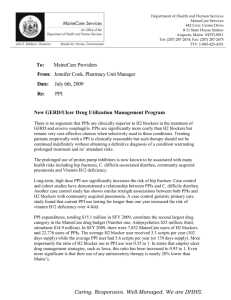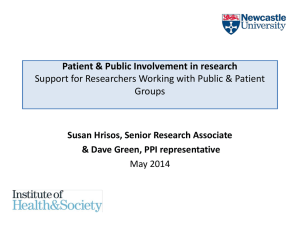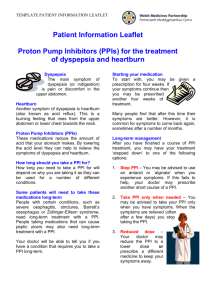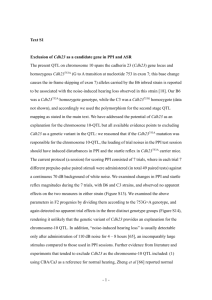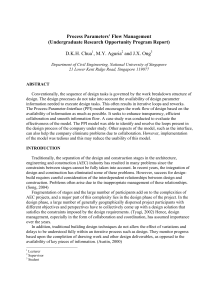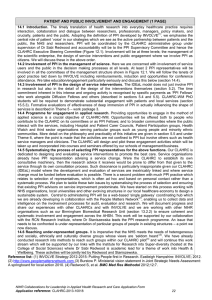J Chubb - University of York
advertisement
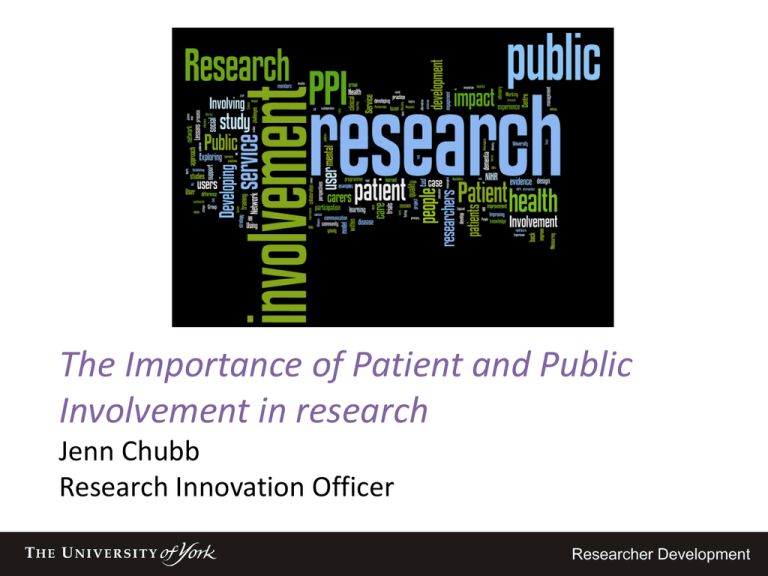
The Importance of Patient and Public Involvement in research Jenn Chubb Research Innovation Officer What is PPI in research? • Research which is done with or by patients and the public, rather than to, for or about them • Involvement in research refers to an active partnership between researchers and patients and the public in the research process • Patients and the public have a decision-making impact on one or more stages of the research process We have a commitment to: • Delivering on the University of York Research Strategy • The Impact Agenda in Higher Education: Funding and Assessment • University Public Engagement Manifesto • Concordat for Engaging the public with research • Training and Development: Concordat for Career Development of ECRs The ‘Foundations’ of the University of York Research Strategy Research Excellence Innovation International Perspective Impact Collaboration and Partnership Integrity The Dept of Health Sciences has established the PPI Committee to "Share, build and improve PPI practice within the Department of Health Sciences” The Impact Agenda: funding and assessment Manifesto for Public Engagement • “We are committed to sharing our knowledge, resources and skills with the public, and to listening to and learning from the expertise and insight of the different communities with which we engage. We are committed to developing our approach to managing, supporting and delivering public engagement for the benefit of staff, students and the public, and to sharing what we learn about effective practice.” • “The Engaged University” - UoY Concordat for Engaging the Public with Research ( RCUK) • A set of principles drawn up by the funders of research: • UK research organisations have a strategic commitment to public engagement • Researchers are recognised and valued for their involvement with public engagement activities • Researchers are enabled to participate in public engagement activities through appropriate training, support and opportunities Training and Career Development What do we mean by patients and the public? • This encompasses a wide variety of people, groups and life experiences. INVOLVE definition: • “Patients and potential patients; people who use health and social services; informal carers; parents/guardians; disabled people; members of the public who are potential recipients of health promotion programmes, public health programmes and social service interventions; organisations that represent people who use services” • It is acknowledged that this definition is very broad… Why is PPI in research important? • The epistemological argument: patients and the public have knowledge of their own illness, disease or health condition that can be of benefit to researchers, who may not have first-hand experience themselves of the issue they are researching • The moral imperative: patients and the public have the right to be involved in any publiclyfunded research that may impact on their health status or the services that they receive Importance of PPI • The consequentialist argument: PPI has the potential to improve the quality, relevance and impact of health research, whilst also improving the transparency of the process and the accountability to the wider community of the researchers themselves • The policy imperative: PPI is currently Department of Health and NIHR policy, so funding often depends on getting PPI right at the grant application stage 3 Levels of PPI • Consultation (where researchers seek the views of patients and the public on key aspects of the research) • Collaboration (an on-going partnership between researchers and patients and the public throughout the research process) • ‘Publicly led' (where patients and the public design and undertake the research and where researchers are only invited to participate at the invitation of patients and the public) Why do it? • UoY is interested in meaningful PPI in the design and conduct of research • Increases feedback and enriches research • Increases funding and research income • PPI helps to promote excellent research • Contributes to the impact agenda and knowledge exchange • NB: Do good PPI- ensure informed consent at all stages, uphold robust ethical governance Support at University of York • PPI departmental committee, Health Sci:http://www.york.ac.uk/healthsciences/resear ch/research-in-healthsciences/ppi/ • Research Development Team: Research and Enterprise: Rachel Curwen, Josine Opmeer • Research Policy: Lizzie Garcha • Training and Development: Jenn Chubb jennifer.chubb@york.ac.uk • References: https://www.sheffield.ac.uk/scharr/ppi
